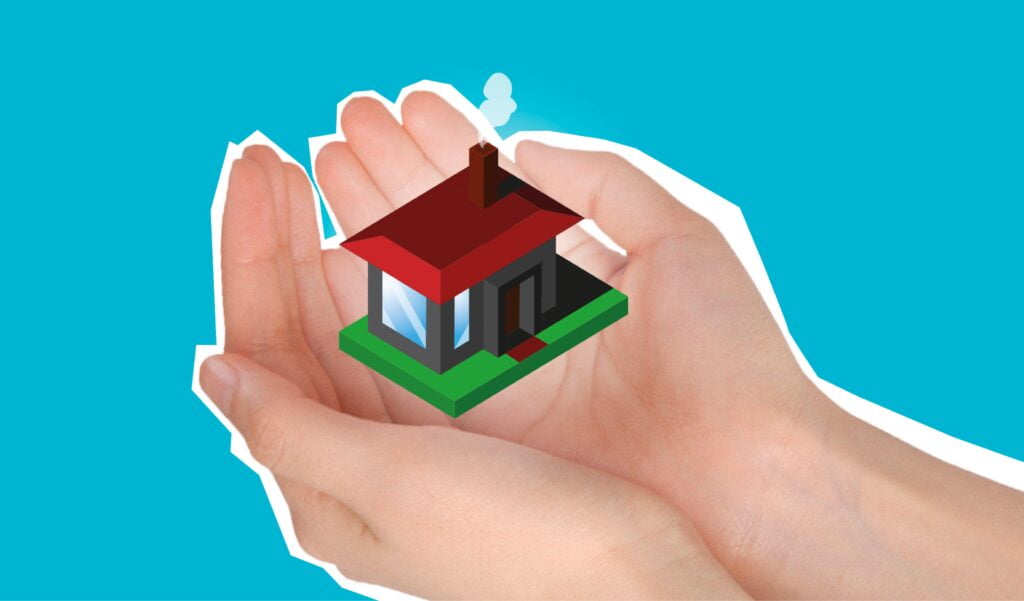If the last year of a global pandemic has taught us anything, it’s that we never know what is around the corner. Even this time last year, no one imagined a year like the one we have had, proving that you just never know what will happen.

What if…
In the last year many people have found themselves without work and therefore, without income. Some people have lost their jobs all together, some have been furloughed and therefore only receiving a fraction of the income they were before, and for many self-employed people, work has either reduced or stopped all together.
Moving forward, we all have to think what else could happen. You’re more likely to be off work sick than you are to pass away before retirement, so this is in many ways the ‘cover’ lots of people need to think about.
Finding yourself unable to work because of illness or injury can be financially devastating, especially if you’re the main breadwinner in your household. How will you pay your mortgage, bills and other expenses relating to your family?
According to the ABI (Association of British Insurers) one million workers a year find themselves unable to work due to a serious injury or illness.
Income protection
So how can income protection insurance help? If you’re sick or injured, Income Protection will help you to pay your bills and provide for you and your loved ones. Where state benefits can and do change inline with government policy, this cover is a contract and a promise to you that won’t change. Some certainty in an uncertain world perhaps?
Whilst you may receive sick pay from your employer, not everybody does and some people overestimate how much they get and therefore how far that will go towards covering all your expenses. Income Protection can provide that financial safety net, should you require it. You can choose a policy built around your own unique circumstances. You can cover as much of your income as possible or choose just to protect your mortgage or rent repayments. It’s up to you how long your plan stays in place and how long each claim pays out for. The best way forward is to speak to an adviser and let them take you through the options available in your particular circumstances.
Income Protection usually provides between 50% and 70% of your salary until: you recover and go back to work; reach state pension age and retire; or, you pass away during the period of the claim.
You will need to decide on a ‘deferral period’ (how long it will take between you making the claim and beginning to receive your pay-out). The longer your deferral period is, the cheaper your premiums will be, so consider this carefully when working out the money you would need to cover your living expenses.
You don’t want to be paying over the odds for your premium, so figure out how much Statutory Sick Pay (SSP) you’re eligible for from your current job and then work out how long you could get by for with just that pay and/or your savings. Once you’ve got that figure, you can work out what deferral period you could manage with.
Income Protection for the self-employed
For self employed people, things can be rather more complicated. Imagine you become seriously ill or injured and can’t go out to work anymore. Perhaps you have a mortgage and a family and no savings? What would happen? How are you going to pay your bills, run your business and put food on the table for your family in those circumstances? What about when there is a school trip or a new school term and everyone needs new school shoes, uniform and winter coats – what then? Arguably, if you’re self-employed then you probably need income protection more than anyone. It really is something to consider very carefully.
Without the safety net of Income Protection, you’d have to pin your hopes on qualifying for Employment and Support Allowance which is financial support from the government if you’re unable to work due to illness or disability. Although this option is available, you wouldn’t receive as much as you could if you were to claim via an Income Protection policy. Think carefully about what expenses you have and the responsibilities you have before deciding.
One of the downsides of being self employed is that it’s all on you. No sick pay, no maternity leave and no pension. Income Protection is designed to replace your income if you were to become seriously ill or injured. Wouldn’t that feel better?
When you are starting out in business it would be a good idea to factor in Income Protection as part of your business plan and monthly business expenses. The amount of cover that you’ll need depends on the size of your mortgage and whether you have taken out any loans to build up the business.
The cost of a policy depends on your age, job, your health and lifestyle and the percentage of income you’d like to cover. Be sure to look at the type of illnesses and injuries covered and make sure you also understand what isn’t covered.
Is it just for people with kids? Certainly not! Unlike with life insurance, it really doesn’t matter if you have a family to protect when it comes to Income Protection. If illness or an accident would mean you couldn’t pay the bills, you should definitely consider this type of insurance.



